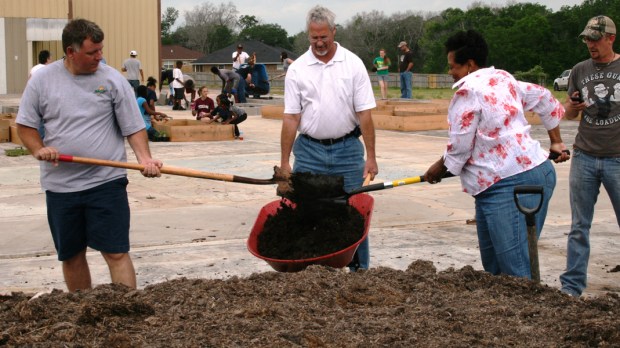Lenten Campaign 2025
This content is free of charge, as are all our articles.
Support us with a donation that is tax-deductible and enable us to continue to reach millions of readers.
During his September 10 flight from Medellin to Rome, Pope Francis was asked about political leaders who deny climate change. His response: anyone who denies climate change should go to talk to the scientists studying the phenomenon because “they are clear.” He added, “If we don’t turn back, we’re going down.”
But in an era of widespread eco-awareness, what more can individuals do to help “turn back” the clock on the damage already done to the planet?
Thanks in part to Pope Francis’ 2015 document on human ecology, Laudato Si, the definition of caring for our common home is increasingly expanding. The call to action issued in that document includes community building, seeing every consumer action as part of a chain of events that affects human lives, and rejecting ideas that treat the human person as just another thing that can be discarded when it is no longer useful. With an expanded definition of caring for the planet there are more ways to take action.
The Catholic Climate Movement, a network of more than 400 Catholic organizations committed to protecting our common home, recently launched a campaign encouraging individuals to commit to living out this new view of ecological awareness. An online toolkit for individuals includes a list of things the average person can do wherever they live and work.
Meanwhile, in Canada, Development and Peace — the international development of the Catholic Church in Canada — published a series of resources for individuals who want to care for our planet as part of a 2016 campaign called “Create a Climate of Change.”
Among the ways individuals can live the call to action to care for our common home:
To reduce your carbon footprint:
- Switch to compact florescent or LED light bulbs
- Travel by alternative means of transport — public transit, bicycle — as often as possible
- Opt for a low-carbon vehicle if possible (e.g., an electric or hybrid vehicle) and ask yourself “Do I really need an SUV?”
Change how you drive: avoid sudden acceleration and braking
- Reduce your intake of dairy and beef
- Go meatless one day a week — e.g., meatless Fridays. Meat consumption accounts for 15 percent of greenhouse gas emissions
- Eat locally produced food if possible, or grow it yourself
- Install solar panels on your home, if possible. Many governments are offering incentives to homeowners who install solar panels.
To live more simply:
- When considering a purchase, ask yourself “Do I need this, or do I want this?”
- Ask yourself if each person in your home needs their own individual electronic devices, or can share.
- Mend clothes with small signs of wear and tear instead of replacing them.
- Eliminate food waste by planning meals ahead of time, buying less food in one shopping trip and learning to store it properly.
Read more:
The power of sewing: Stitch by stitch it can heal wounds, and build up the world
Another key part of the call to action in Pope Francis’ Laudato Si is realizing we are all connected and living in a way that takes that into account:
- Use money saved from some of the lifestyle changes above to support food banks, shelters, meal programs, international aid initiatives.
- Reach out to people in your community who you would normally not connect with: invite someone for dinner who has never visited you before.
- For entertainment, instead of spending hours in front of a TV or a computer, try reading aloud to each other.
- Try a “community lunch” at your workplace (essentially, pot-luck lunch).
Read more:
Reading aloud to someone else is a gift of self and presence
Education and advocacy are also areas in which individuals can make an impact.
- Read and learn about how things impact the environment and the marginalized in order to make better decisions.
- Advocate for change in your local, regional, national community. Changes made by organizations and governments can have a deeper impact than individual action — but many organizations will only change their ways if individuals push them to do so.
Some other simple, everyday tips:
- Carry reusable shopping bags (be sure to disinfect them after every shopping excursion!)
- Take your lunch to work in reusable containers
- Ask for a real cup instead of a to-go cup the next time you go to your favourite coffee shop
- Ask for your drink to be served without a straw the next time you dine out
- Consider purchasing refurbished electronic devices rather than factory new the next time you need a new device. This cuts down on exploitative practices used to get the minerals needed to make those devices.
- Skip the bottled water and drink tap water instead if possible.
Here are more simple ideas anyone can put into action.
Want to learn more about this new view of saving our planet? Read Laudato Si.

